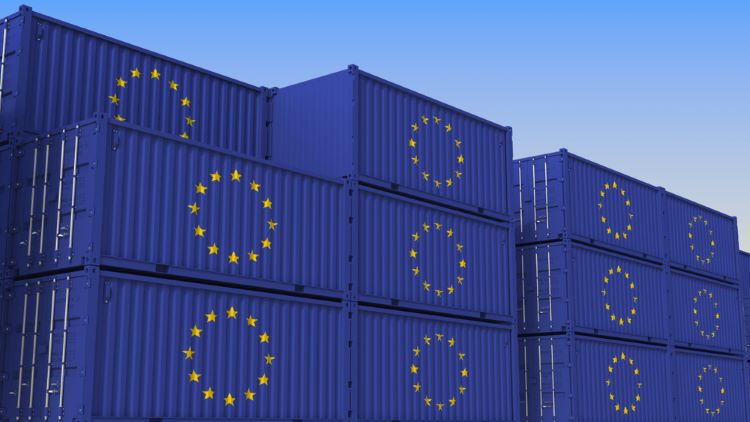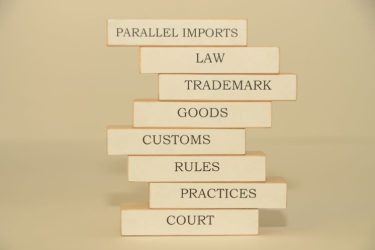Parallel import of medicinal products: regulatory update
Posted: 14 March 2023 | Andrzej Siwiec (DBS Law Firm), Katarzyna Bajer (DBS Law Firm) | No comments yet
Andrzej Siwiec and Katarzyna Bajer of DBS Law discuss recent rulings on the parallel import of medicinal products in the European Union.


Parallel import of medicinal products is one of the basic and admissible forms of international trade in the European Union (EU) market, based on the principle of free movement of goods established by the Treaty on the Functioning of the European Union. It is based on the price differentiation of medicinal products between the Member States, which enables parallel importers to purchase medicinal products in EU countries where prices are lower and then resell them in other countries where the prices are higher.
Nevertheless, the parallel import of medicinal products involves, in many cases, interference with the exclusive rights of trademark proprietors. This is due to the regulatory requirements imposed on parallel imported medicinal products in various Member States, the fulfilment of which often requires repackaging. This concerns the quantity of the medicinal product in the packaging, ie, the increase or decrease in the number of units of the product in the outer packaging according to local demands and its labelling, including the leaflet, which should be in the language of the country into which the product is imported.
Repackaging a medicinal product… means that the trademark is reapplied by an entity other than the trademark proprietor.”
Adaptation of imported medicinal products to meet these requirements is achieved either by repackaging the product into new outer packaging or by applying a new label to the existing packaging. Repackaging a medicinal product to adjust it to the requirements of local markets frequently means that the trademark is reapplied by an entity other than the trademark proprietor.
According to the EU exhaustion principle, the first placing of goods bearing the trademark on the market in one of the EU countries by the trademark proprietor or with its consent results in the possibility of its subsequent distribution by other entities, without the trademark proprietor’s control, unless the proprietor has legitimate reasons to oppose further distribution. In the perspective of parallel import, however, it is worth emphasising that the two principles, such as exhaustion of rights and free movement of goods are not absolute. They are restricted, in particular, respectively by legitimate reasons such as the need to protect product quality and a legitimate need to secure intellectual property rights.
Historic rulings related to parallel import of medicinal products
CJEU established five conditions that a parallel importer is obliged to fulfil in order to be able to successfully repackage the product without the consent of a trademark proprietor.”
Issues relating to the repackaging of parallel imported medicinal products have been considered by the Court of Justice of the European Union multiple times.
CJEU ruling in the Bristol Myers Squibb case (CJEU judgment of 11 July 1996 in joined cases C-427/93, C-429/93 and C-436/93)1 is noteworthy. CJEU established five conditions that a parallel importer of medicinal products is obliged to fulfil in order to be able to successfully repackage the product without the consent of a trademark proprietor – called ‘BMS conditions’. BMS conditions, if met, make it unjustified for a trademark proprietor to oppose repackaging of its products by parallel importer.
Their fulfilment occurs through:
- demonstrating that the trademark proprietor’s opposition to the importer’s repackaging of its products would contribute to the artificial partitioning of markets between Member States
- showing that the repackaging will not affect the original condition of the product inside the packaging
- clearly indicating on the new packaging who repacked the product and who its manufacturer is
- ensuring the proper quality and presentation of the repackaged product, so that the repackaging cannot damage the reputation of the trademark and its proprietor
- notifying the trademark proprietor by the importer of the repackaging before placing it on the market and, if requested by the trademark proprietor, providing a specimen of the repackaged medicinal product.
In the judgment ‘Pharmacia & Upjohn SA vs Paranova A/S’ (CJEU judgment of 12 October 1999 in case C-379/97)2 CJEU decided that BMS conditions apply also to the medicinal product rebranding.
Four recent rulings on parallel imports


In November 2022, the CJEU announced four rulings on the parallel import of medicinal products. The Court assessed whether rebranding of a generic product with the original’s brand by parallel importer is permissible. It also established some rules on repackaging for parallel importers in the context of Falsified Medicines Directive.
CJEU judgment in joined cases C-253/20 and C-254/20
Background
Novartis marketed a reference medicinal product in the Netherlands and Belgium under the EU-registered trademark ‘Femara’ (Case C-253/20)3 and another reference medicinal product in Belgium under the trademark ‘Rilatine’ and in the Netherlands under the trademark ‘Ritalin’ (Case C-254/20). At the same time, Sandoz BV, an affiliate of Novartis, marketed their generic equivalents in those countries under the names ‘Letrozol Sandoz 2.5 mg’ and ‘Methylphenidate HCl Sandoz 10 mg’ respectively. In both cases, parallel importers (Impexeco and Pi Pharma) imported repackaged and rebranded generic Sandoz BV medicinal products from the Netherlands into Belgium with the trademarks of Novartis’ reference products.
CJEU’s position in the case and discussion
CJEU indicated that the trademark proprietor may oppose the repackaging by a parallel importer of the medicinal products unless (i) they are identical in all respects and (ii) the replacement of the trademark satisfies the BMS conditions. The CJEU stressed that identical medicinal products are not those that are only therapeutically equivalent (as generics are to reference products), but they should be identical in all respects. This condition arises, in particular, when the reference and generic medicinal products are manufactured by the same entity or by economically linked entities, which in fact constitute one and the same product marketed under two different sets of rules.
The CJEU stressed that identical medicinal products are not those that are only therapeutically equivalent…but they should be identical in all respects.”
Even once the identity conditions are met, it remains relevant to determine whether repackaging and rebranding are objectively necessary for the parallel importer to obtain effective market access and ensure the free movement of goods. This condition is not fulfilled if the parallel importer is able to sell the product under its trademark of origin, adjusting its packaging, if necessary, to the market requirements of the importing Member State. CJEU also noted that, as a rule, it is impermissible to refuse granting a parallel import licence for a generic medicinal product when the corresponding reference medicinal product is authorised in the importing country (except for the need to protect human health and life). Therefore, the identity of the two products in all respects makes it objectively possible for parallel importers to sell the generic medicinal products under its trademark of origin. Furthermore, the CJEU clarified that the replacement of the trademark of origin by another trademark of the proprietor cannot be justified solely by the pursuit of an economic advantage specifically from the trademark of the reference medicinal product or the placement of the product in a more profitable category.
It is impermissible to refuse granting a parallel import licence for a generic medicinal product when the corresponding reference medicinal product is authorised in the importing country”
The ruling provides better understanding of the “objective necessity” condition. The position of CJEU deserves praise for stating clearly that rebranding a generic medicinal product with use of a reference medicinal product’s trademark is not objectively necessary if the corresponding reference medicinal product is authorised in the importing country. A contrary judgment would definitely interfere too widely into trademarks’ proprietors rights, who should have the right to decide which of their products are to bear which of their trademarks. From the perspective of disputes between trademark proprietors and parallel importers, CJEU’s ruling remains important as it stresses that the condition of the ’objective necessity’ to reaffix the trademark of origin to another proprietor’s trade mark cannot be justified solely by the endeavour of economic benefits arising in particular from the reputation of the trade mark, which in many cases constitutes the main reason for the product’s rebranding.
Five potential EU regulatory changes impacting the life sciences industry in 2023
CJEU judgments (C‑147/20, C‑204/20, C-224/20)
Background
In each case (C‑147/20, C‑204/20, C-224/20)4-6, the dispute arose from the parallel importer’s need to open a medicinal product’s outer packaging to adapt the imported product to regulatory requirements of the importing country. Opening packaging resulted in breaching the anti-tampering device. Parallel importers repackaged the product into new packaging, justifying this by the need to apply a new anti-tampering device and by visible traces of interference in the existing anti-tampering devices. Trademark proprietors, on the other hand, objected to the repackaging on the grounds that it was sufficient to put a new label on the product.
CJEU’s position in the case and discussion
CJEU assumed that repackaging and relabelling parallel imported medicinal products are equivalent forms of repackaging and neither should have priority. It was also pointed out that the trademark proprietor may oppose repackaging if the parallel importer is able to reuse the original packaging for the purpose of marketing in the Member State of importation by affixing labels to that packaging and on condition that the medicinal product is able to have effective access to the market.
Repackaging and relabelling parallel imported medicinal products are equivalent forms of repackaging and neither should have priority.”
Furthermore, CJEU ruled that visible traces of opening the original packaging attributable to repackaging by a parallel importer do not in themselves constitute grounds for repackaging a medicinal product unless there is such strong resistance in the importing country from a significant group of consumers to purchasing such products that it would constitute an obstacle to effective market access. However, the existence of such resistance should be assessed in concreto in each case and cannot be presumed by the importer.
Significance of the latest rulings on parallel imports
Parallel importers cannot apply the principle of presumption of consumer resistance to the purchase of medicinal products which have not been repackaged.”
The above rulings from 17 November 2022 should be perceived positively, as reinforcing the principles of minimising the parallel importer’s interference with the trademark proprietor’s rights. It should be emphasised that parallel importers cannot apply the principle of presumption of consumer resistance to the purchase of medicinal products which have not been repackaged.
About the authors




References
- Joined cases C-427/93, C-429/93 and C-436/93 Bristol-Myers Squibb v Paranova A/S (C-427/93) and C. H. Boehringer Sohn, Boehringer Ingelheim KG and Boehringer Ingelheim A/S v Paranova A/S (C-429/93) and Bayer Aktiengesellschaft and Bayer Danmark A/S v Paranova A/S (C-436/93) [1996] ECR 1996 I-03457. Available from: EUR-Lex – 61993CJ0427 – EN – EUR-Lex (europa.eu).
- Case C-379/97 Pharmacia & Upjohn SA v Paranova A/S [1999] ECR 1999 I-06927. Available from: EUR-Lex – 61997CJ0379 – EN – EUR-Lex (europa.eu).
- Joined cases C-253/20 and C-254/20 Impexeco NV and PI Pharma NV v Novartis AG and Novartis Pharma NV [2022]. Available from: EUR-Lex – 62020CJ0253 – EN – EUR-Lex (europa.eu).
- Case C‑147/20 Novartis Pharma GmbH v Abacus Medicine A/S [2022]. Available from: EUR-Lex – 62020CJ0147 – EN – EUR-Lex (europa.eu).
- Case C‑204/20 Bayer Intellectual Property GmbH v kohlpharma GmbH [2022]. Available from: EUR-Lex – 62020CJ0204 – EN – EUR-Lex (europa.eu).
- Case C-224/20 Merck Sharp & Dohme BV and Others v Abacus Medicine A/S and Others [2022]. Available from: EUR-Lex – 62020CJ0224 – EN – EUR-Lex (europa.eu)
Related topics
Big Pharma, Distribution & Logistics, Drug Supply Chain, Legal, Regulation & Legislation, Therapeutics
Related organisations
Related people
Andrzej Siwiec (DBS Law Firm), Katarzyna Bajer (DBS Law Firm)









